Family Time
The pandemic has given us at least one gift, an opportunity to see from a different perspective. More than ever, the importance of family time stands out. It’s what enabled us to survive the savannah, and it’s what makes us human.

A typical market scene in Arusha, Tanzania, November 2019
The pandemic has given us at least one gift, an opportunity to see from a different perspective. More than ever, the importance of family time stands out. It’s what enabled us to survive the savannah, and it’s what makes us human.
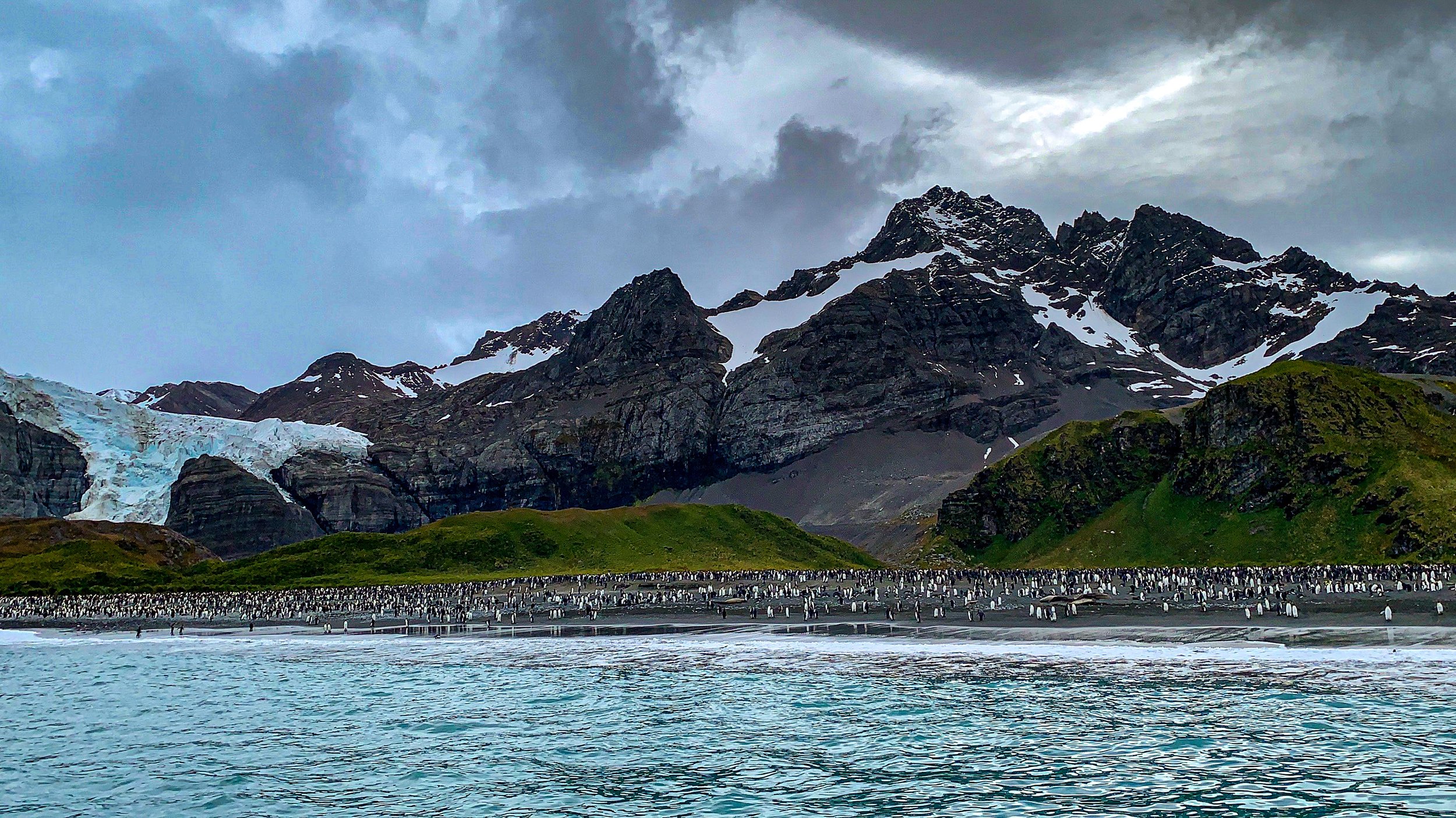
A glimpse of South Georgia Island, penguins glaciers and all, March 2019
I saw more acquaintances tonight than I have in a while, and it was refreshing. We are indeed social creatures, but it provided insight to how integral it really is. We need to address that social miracles exist, because when we stop to look, it’s all pretty amazing.

The Great Wall at Badaling on a typical smoggy day near Beijing, China, June 2012
The crux is to align on what matters. If we can openly discuss what fundamentally matters most, we’ll surprise ourselves: we want the same things, across cultures and continents, all across the world.
The hard part is then done. Sure there will still be work involved, lots of it. But the primary step is to see beyond the limitations determined by the current configuration of our institutions.
We are free to change the world, to shape the future toward equality and prosperity. We just have to see it. To take command. What do you see?
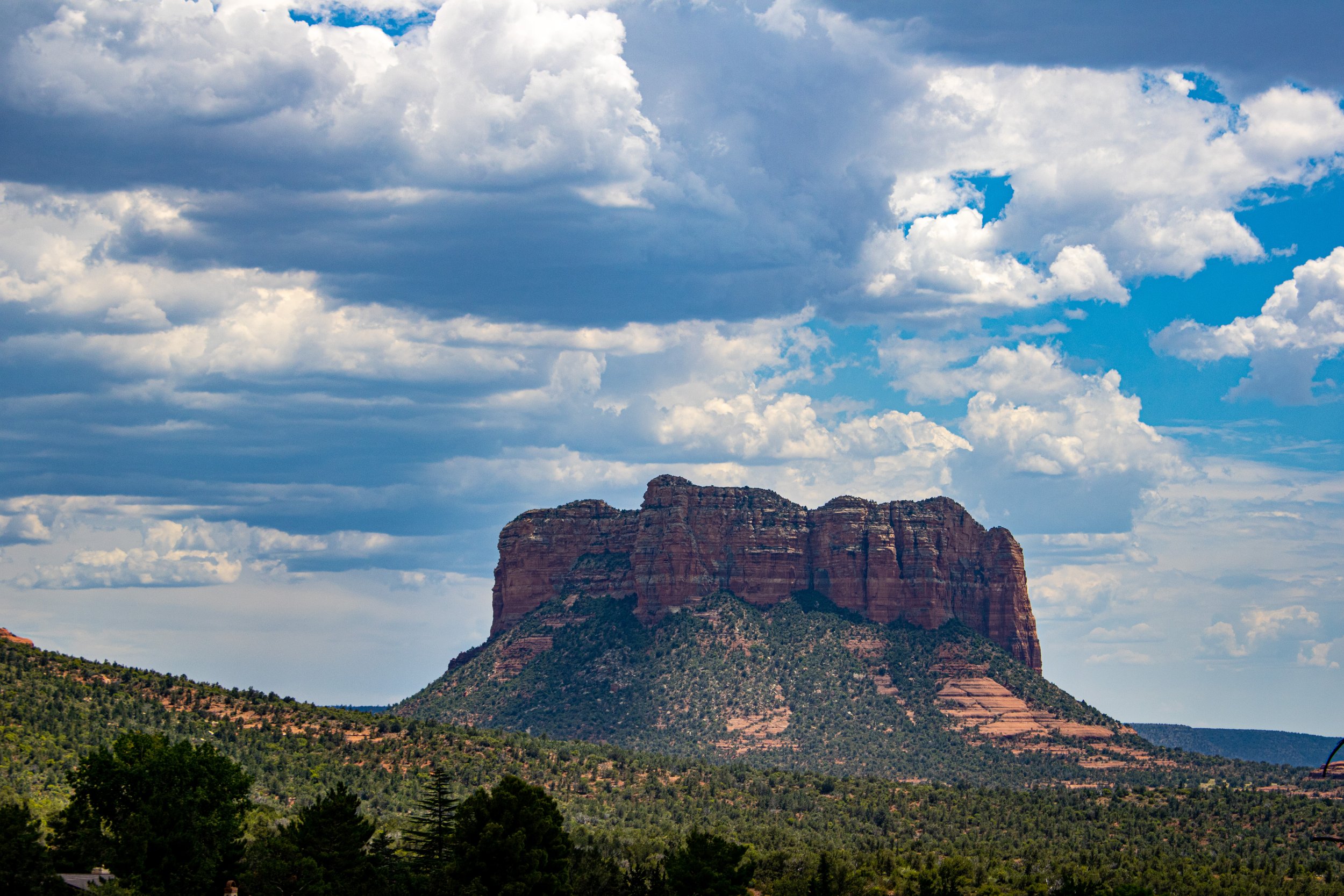
Distant view of Bell Rock in Sedona, Arizona, July 2020
I always push back on the concept of karma, that “what goes around comes around.” I don’t disbelieve it, but I’m also not aware of any real evidence that “what you put out in the world comes back to you.”
Really, I think it’s just something people say and believe in to make themselves feel better.
And that’s okay. The adherence to such a code doesn’t harm anyone. But a small voice inside me always retorts: do good because it’s right, because you want to. Even if there’s no cause or sensible connection to your suffering, accept it as a condition of being a part of this miraculous universe, and decide to still do good.
This independence, this ability to choose our way, despite hardship or circumstances, is what makes us human. The contributions we make to the universe come from conviction, not as a response to a stimulus. We can change the world, not because something good happened to us, but because we want to.

A stunning mixed sky over the Amazon River in Peru, April 2019
I’m sure I’m not the only one who feels they constantly repeat themselves when discussing the pandemic or politics. It almost feels as though we’ve lost our ability to think critically, to parse our nuance.
Our society, and our world, has reached an important juncture: our technology enables us to do incredible things, but we still need to improve our ability to organize.
We are bound by our biology to certain things, but openness and consideration aren’t included. How else did we learn to explore and to build? For that is in our biology too.

The main promenade in Cairns, Australia, January 2020
I believe it’s important to love what you do. If we ascribe meaning to the activities that fill our time, then our lives become meaningful.
There’s more than one way to go about this; your can do what you love for work, or you can dedicate your free time to hobbies that are meaningful to you. I don’t think there’s a “right” way, as everyone’s circumstances are slightly different.
I’m still exploring my way, and it’s all a part of the journey, the figuring life out. But that meaning, that connection, is integral to our existence as humans. In a way we’re so small and insignificant on the scale of the universe. But we’re also connected to it, a part of it, and our contributions ripple through space and time, one with it all.

A shot of peaceful Siena, Italy, away from the crowds in August 2019
We don’t know how much time we get, and it can make even the so-called “ordinary” moments that much more special. Living with love, spending time with your tribe… the older we get, the more this becomes obvious. When we consider it this way, we recognize we really do have it all.
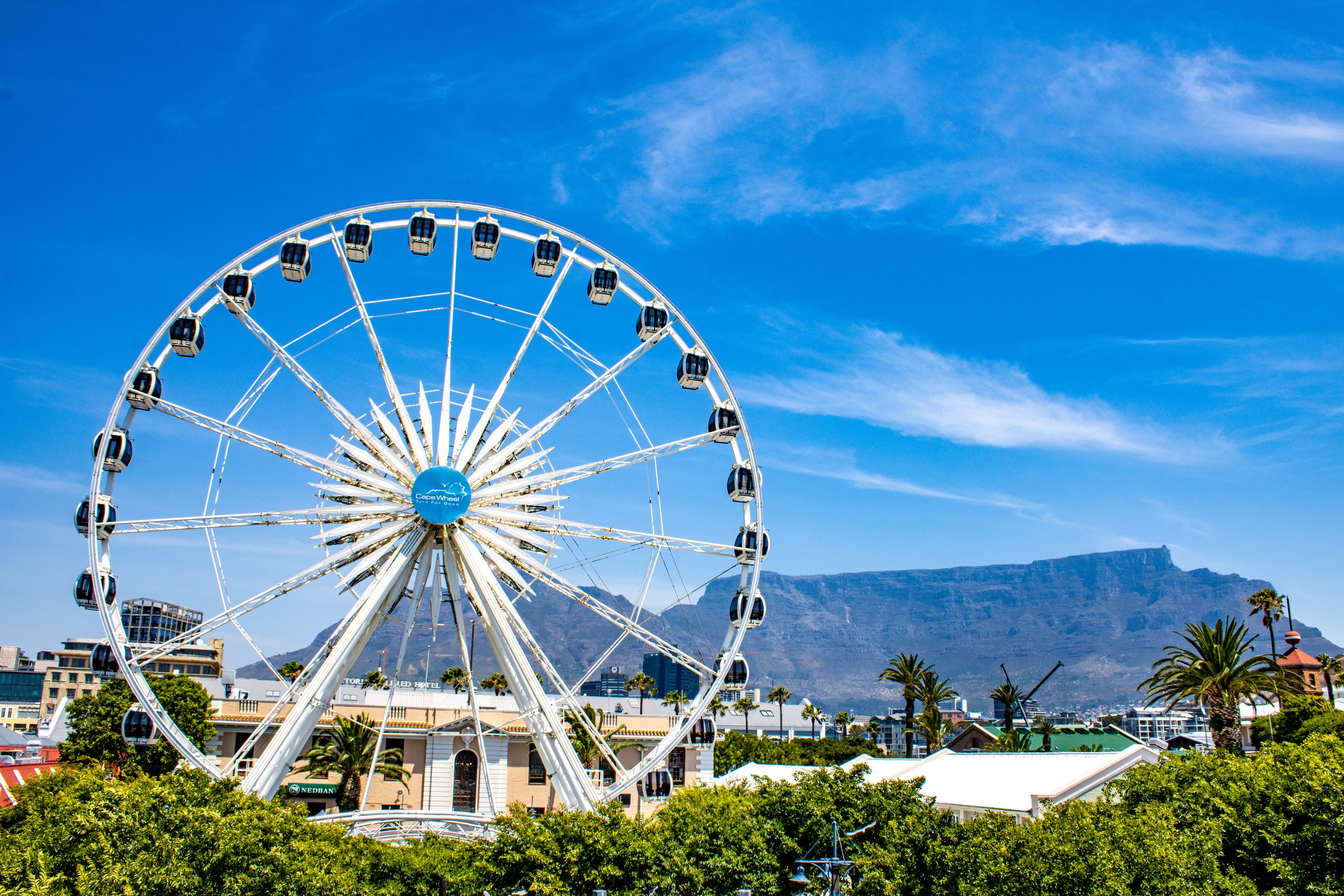
Looking out toward Table Mountain from the V&A in Cape Town, South Africa, December 2019
It truly is a incredible thing.. this journey that we call “life.” How many people living right now have friends since they were children? Perhaps that could be a metric we track to assess the health of our species’ progression. We make our way separately yet together, in this modern landscape. I’m as much a learner as anyone else, but… we seem to be social creatures, and this collective experience appears to be better together.
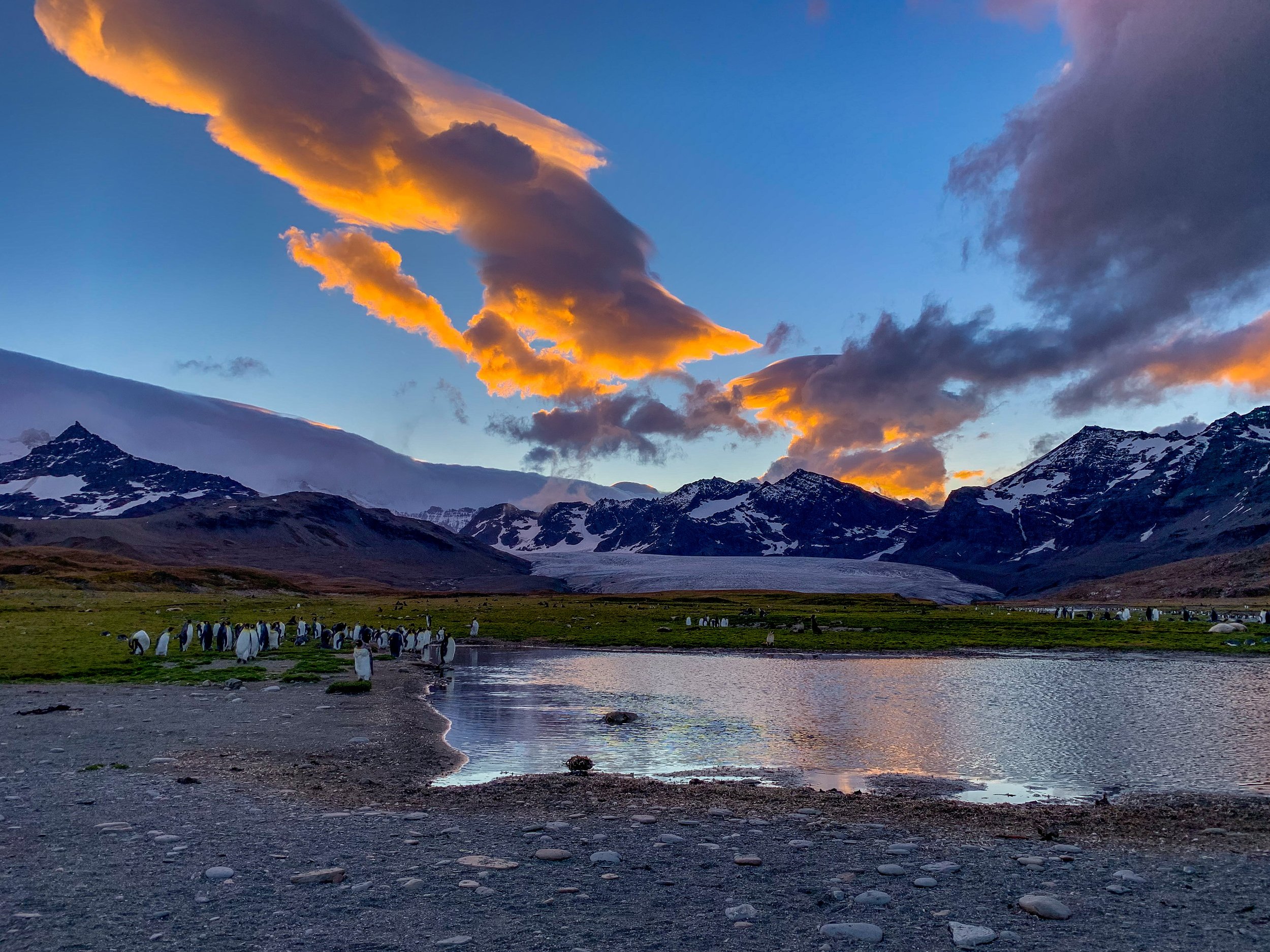
South Georgia, island of wonder, on a balmy day in March 2019
Today during my mediation I truly focused on my breath, and it was a revelatory experience. I could feel my mortality, my biological body sustaining itself with the oxygen it requires to exist.
Afterwards my thoughts strayed to the universe. The elements that exist in the universe are what we have to manipulate, to play with, so to speak, within the “rules,” or properties, of the universe. And we’re still learning these rules.
We can do anything we want within the confines of these basic laws and elements. We can be anything we want. How amazing that simple fact is, this life is. What will we embark on, what will we embrace, what will we do with this sentience? What do we want to be?

Monks on their daily early morning round in Luang Prabang, Laos, March 2020
On a podcast I heard someone say, “people don’t think about politics, they think about the conditions of their lives.”
While this may be true, we also need to understand that politics determines the conditions of our lives. Politics is making the decisions of how to organize our society, determining what systems to use, and establishing rules and policies.
If we don’t like the conditions of our lives, the solution is to change the system. It all comes down to how we organize, and that is politics.

A cemetery in Paris, Texas offers opportunity to reflect on time and purpose, January 2021
Do you ever look out on your calendar, months ahead, and wonder what it will be like then? In doing some planning for this year, I experienced that sensation when viewing the calendar for April, July, December of 2022.
Fluctuation seems to be at the core of being human. We adapt to changing circumstances, altered perceptions and varied expectations. Knowing what we do now, how has the internet shaped our collective psyche? Do we feel the heat to act on climate change?
Setting our perspective within this larger time frame, of a year, a decade, our lifetime, our civilization.. this is how we can feel confident in our choices, how we can determine our sacrifices, and how we can form our continuing reality.
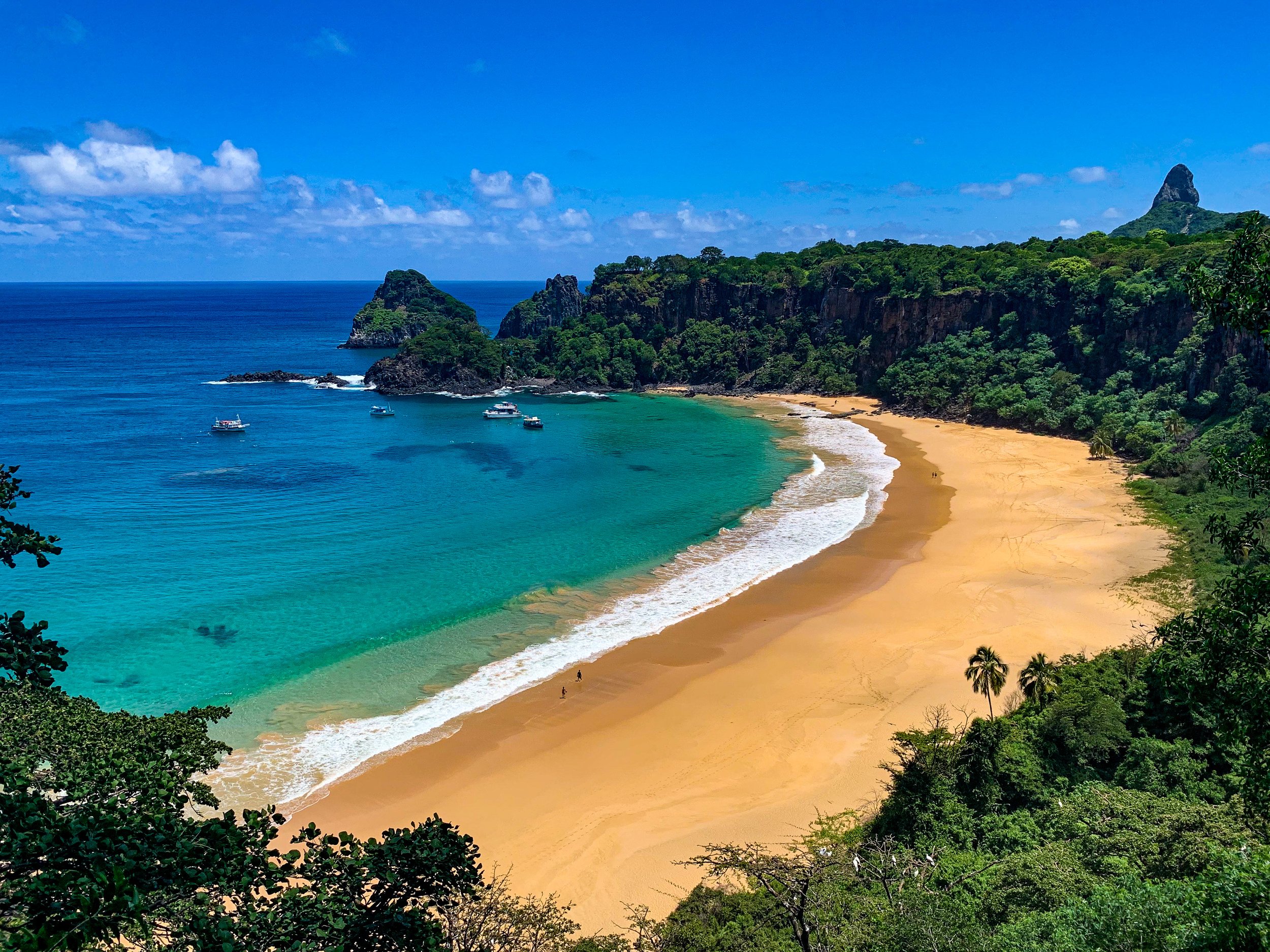
Problems melt away when you take in how beautiful our planet is, Fernando de Noronha, Brazil, February 2019
I heard the host on my news show today say “I’m confident you could pick random people off the street and they would do a better job than our elected officials,” or something along those lines. They were referring specifically to our congressional representatives’ complete lack of advocation for wildly popular policies, like drug price reform and a $15 federal minimum wage and healthcare for all; these positions consistently poll at 60% majority or higher.
Yet I don’t think it’s that simple. It appears the system we have incentivizes such behavior, or lack of action, from our legislative officials. I don’t know if “regular people” would do any better, as they would be subjected to the same systemic forces.
So how do we combat these institutional pitfalls, these larger-than-life machines? It’s our same answer: evaluate our paradigms, in order to recognize we are one. Reject the culture war, the partisanship, and the polarized pandering. We will all benefit from a reformed system, as we are all more similar than we are different. We all want the same things. If we come together, we can change the world.

Two kangaroos enjoying the sun in a preserve south of Sydney, Australia, January 2020
We really do enjoy a fleeting moment together on this planet. I used to think of it as clutch when I was a teenager…how you perform when it matters.
The truth is it all matters. When we inhabit the present, we’re connected to all of it. We can change the world, and make our mark on the universe.
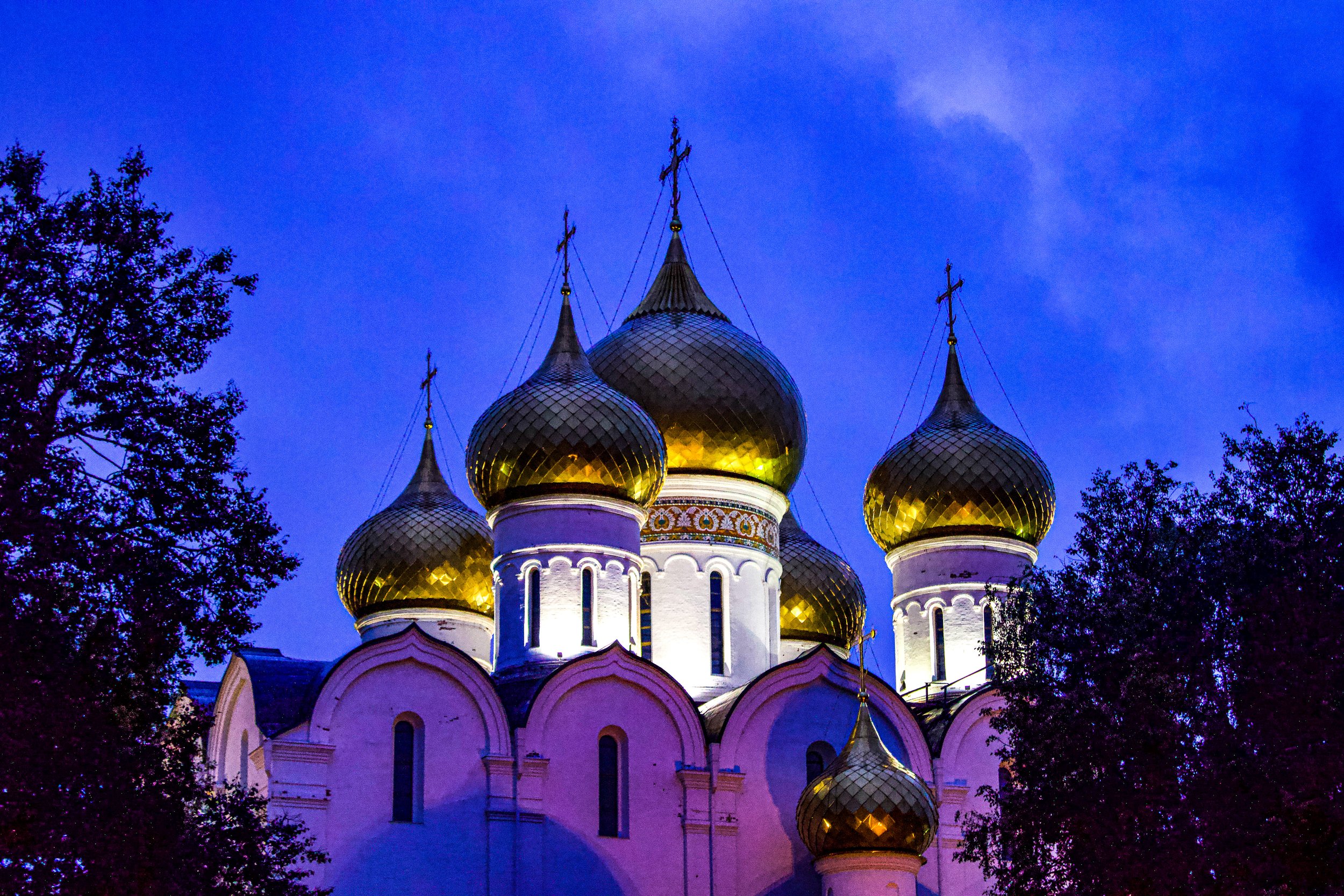
Famed onion domes atop a church in Sergiyev Posad, Russia, September 2019
It was serendipitous, on Martin Luther King Jr. Day, that I read a news headline which read, “The world's 10 richest people have increased their wealth from $700 billion to $1.5 trillion since early 2020.”
MLK preached love and equality, and has shown us the way. It seems we must once again remember his words as we look upon a deeply unequal world.
Like all the other greats, the message is the same: we are one people, living on this one wondrous planet. Together, we can make a glorious contribution to the universe. But it requires us to come together first. Remember the words of Martin Luther King.
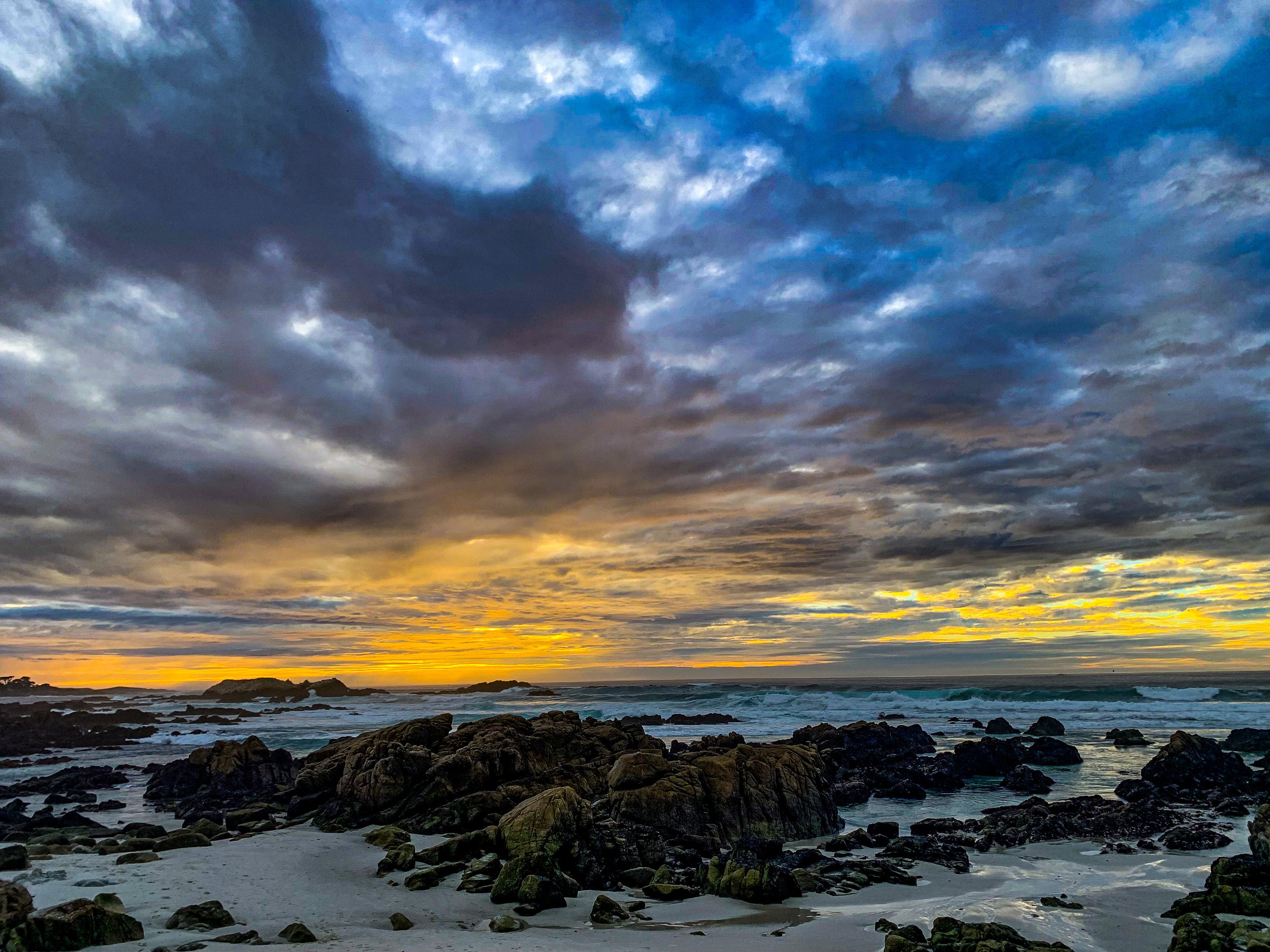
Lucky to be a witness at Pebble Beach today in Monterey, California
Today I soaked in the transition zone where water becomes land. The Monterey area is truly magnificent, with red lichen and green growth and tan rocks all competing for prominence before the clear blue of the sea. Do we need further motivation to strive for harmony with our planet?
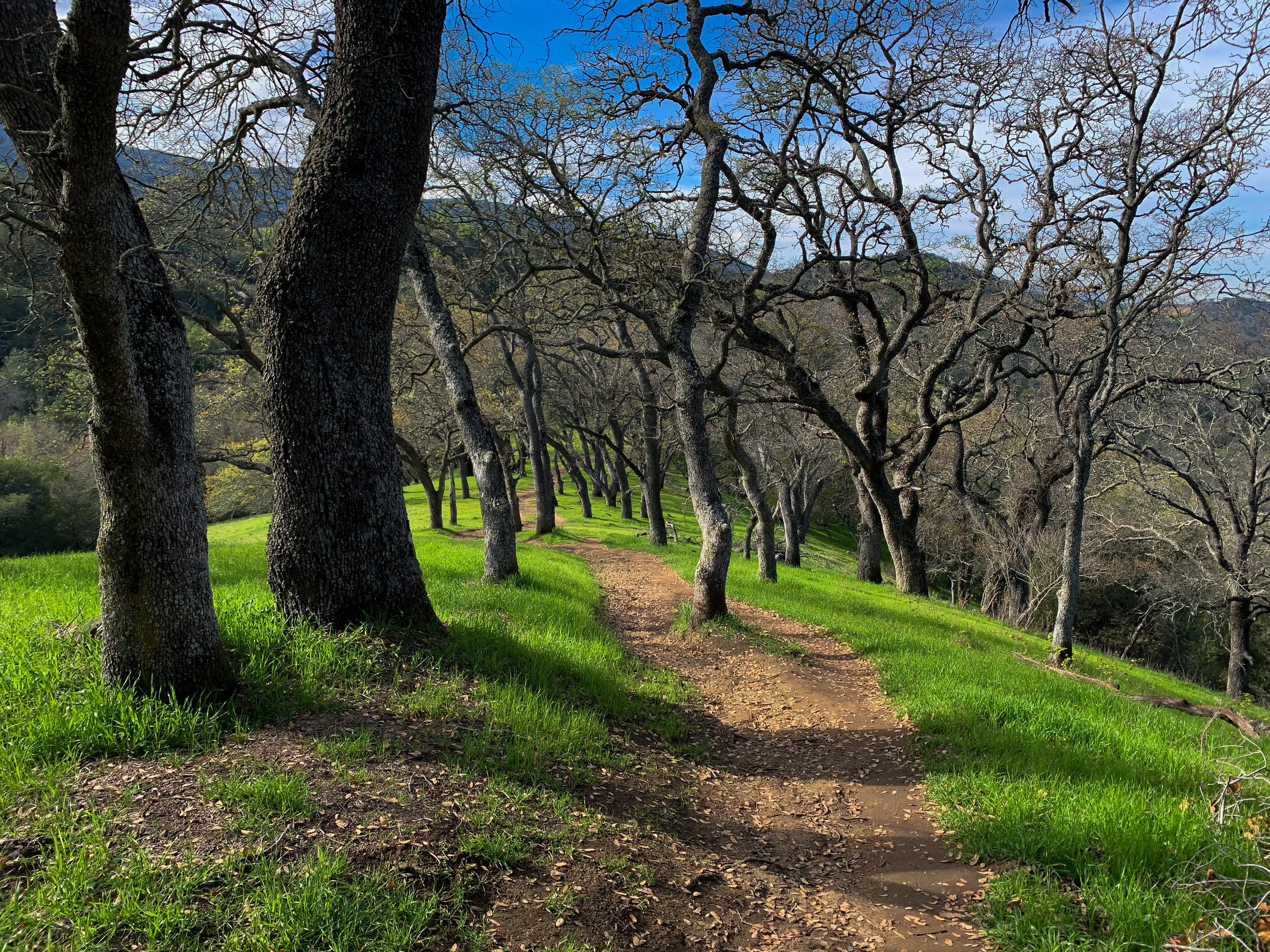
Exploring Almaden Quicksilver County Park’s trails today in San Jose, California
Nothing beats family time. I think the earlier you learn that in life, the more confident you can be about your life’s direction and purpose. We really do have it all, when we are in complete sync with our tribe.

The lions at Lake Manyara have learned to nap in trees, Tanzania, October 2019
We can build in our lifetimes yes, but truly what life is good at, what it’s designed for, is building over generations. Humans have the strongest ability known in the universe to pass down knowledge, to pass down progress. Consider what the average person’s life was like in 10,000 B.C. Death and danger were surely omnipresent. And while in 2022 we still have serious problems to address, let alone solve, we also have developed language and writing systems, we’ve created technology that makes life easier and maximizes our time. Far less people starve, far more die of old age. We have honed the methods for improvement over generations, over millennia. We inherited this progress, and enjoy its fruits because of the gifts of others. So: what shall we do with all this opportunity, this limited time we call a lifetime?
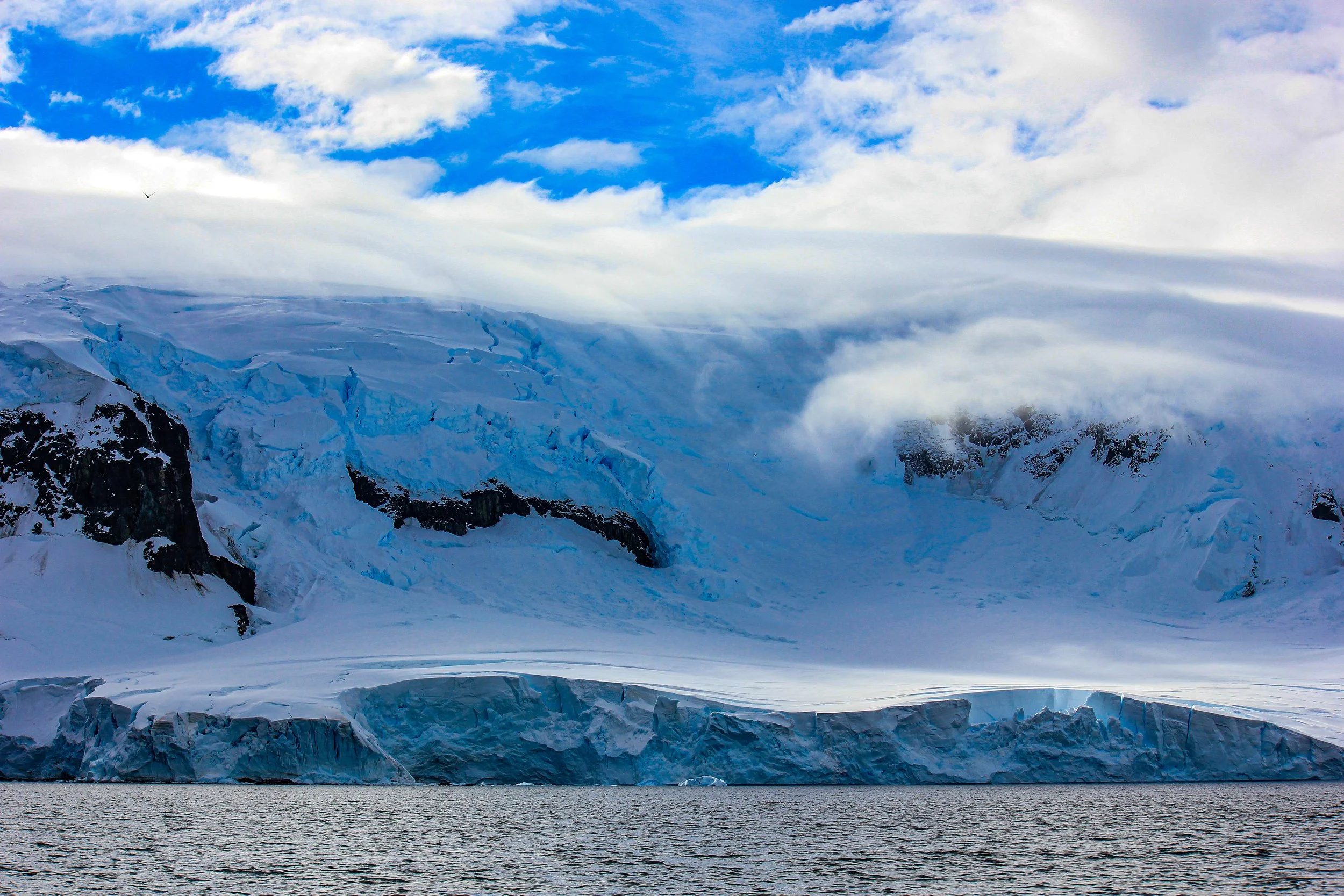
Speeding past glaciers and mountains off Antarctica, March 2019
“Begin with the end in mind” is a great chapter in The 7 Habits of Highly Effective People by Stephen Covey, a book I read many years ago.
We want people to mourn us when we’re gone. I believe it’s not because we want to feel relevant or important.
It means we imparted something upon them, something valuable, something worthwhile. And that will get passed down, and evolve, as life continues to flourish after us.
It’s an acceptance of something greater than ourselves, and a desire to contribute to it. It’s a gift with no thought for reward. It’s what we leave behind.

Exploring the Forbidden City, early in my travels, in Beijing, China, April 2012
I was shocked when I thought back to my time living abroad and realized it began more than a decade ago. I returned to the US toward the end of 2015, but I embarked on my transformative journey, first to South Africa, back in 2011.
I wouldn’t recognize myself, from either end of it. We change over time, as our relationships, residences, and environments change. Yet I can identify some values and principles I established some ten years ago that I still live by: respect, responsibility, resolve… time, health and love. I can still remember sitting down at my kitchen table in Cape Town and writing them down. The very early beginnings of TAV, although I didn’t know it at the time, started at that wooden table with paper and pencil.
We may evolve over time, but we can choose to hold ourselves accountable to what we believe, to what’s right. We have the complete freedom and power to choose how we want to live. And at a very high level, if we open up to it, we begin to see we all want the same things, that we are more similar than we are different…and that we’re all here together, on this wondrous planet Earth. We can build a prosperous global society, a thriving planetary ecosystem, if we reckon with these basic truths. We can, indeed, change the world.

Then there are Hawaiian sunsets in February… Maui, 2021
I was watching a movie the other day and a scene followed the main character driving in the snow on the way to work. It kind of floored me; I’ve definitely never done that before. It may have been bitterly cold and lightly snowing on my morning commute riding the Beijing subway once or twice, but it wasn’t the Chicago snow depicted in this film.
California’s winter weather couldn’t be more different—I routinely wear a tank top in December and January. But sixty degrees Fahrenheit is also nothing to Australia’s January weather. It was routinely over a hundred when I was there just before the pandemic started. Through my extended stay there, and come to think of it also, while I lived in Cape Town a decade ago, I never got used to the southern hemisphere’s opposite seasons.
These musings demonstrate how magnificent our planet is. Without travel to vastly different places, our environment becomes normalized. The Earth offers so much to explore and experience; it’s easy to take it for granted in modern life. But the majesty is there, if we open our eyes to this big beautiful amazing world.